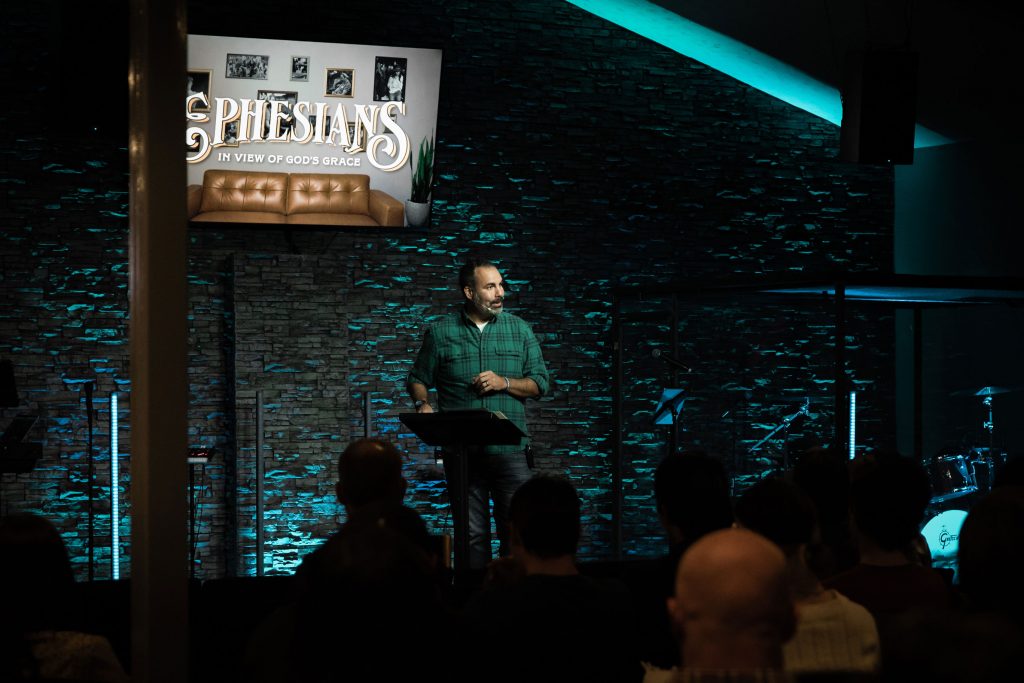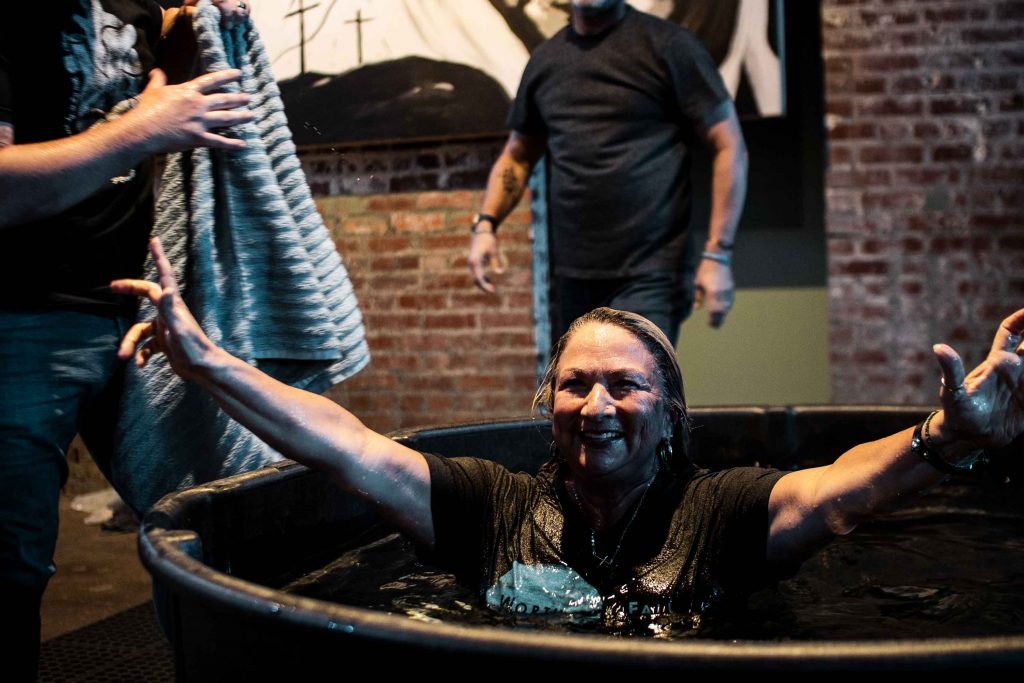At The Experience, our mission is to make authentic followers of Jesus Christ. We do this through authentic worship, authentic community, and authentic community service.
We are a group of Christ-followers focused on living the life Jesus has called us to live. We are a nondenominational, self-sufficient community that teaches the biblical principles of grace, mercy, love, truth, and community service.
If you are intimidated or uncomfortable in traditional churches and desire genuine worship and community, this might be a chance for you to experience an authentic encounter with God.
Weekend Services at The Experience
At our weekend services, we focus on verse-by-verse teaching of the Bible, corporate worship, and communion—because we believe that authentic worship begins and ends in a genuine relationship with Jesus Christ. Salvation is not just found in one or two scriptures, but through a personal walk and relationship with God.
We are a community dedicated to Christ’s saving grace, constant repentance, baptism as a symbol and public profession of Christ’s work, the indwelling and empowering of the Holy Spirit (the fruit and gifts), and the marriage of faith and works as the evidence of genuine salvation.
We believe in the deity of Jesus Christ, that the Bible is the inspired Word of God, and in the power of the Holy Spirit.
Weekend Services at The Experience
At our weekend services, we focus on verse-by-verse teaching of the Bible, corporate worship, and communion—because we believe that authentic worship begins and ends in a genuine relationship with Jesus Christ. Salvation is not just found in one or two scriptures, but through a personal walk and relationship with God.
We are a community dedicated to Christ’s saving grace, constant repentance, baptism as a symbol and public profession of Christ’s work, the indwelling and empowering of the Holy Spirit (the fruit and gifts), and the marriage of faith and works as the evidence of genuine salvation.
We believe in the deity of Jesus Christ, that the Bible is the inspired Word of God, and in the power of the Holy Spirit.
Expository Teaching
During our weekend services, we teach expositorily, which means looking at the Bible verse by verse. As a church, we read through an entire book of the Bible before beginning another, which allows us to study God’s Word in its entirety. We believe this is the best way to teach His will as it forces us to talk about the unpopular parts of Scripture and to have meaningful conversations about difficult topics.
Twice a year, we have Baptism Services, where we teach the meaning and importance of baptism, and Vision Services, where we talk about the direction and status of the church.
If you’d like to watch previous sermons in our current series, click on the button below!


Expository Teaching
During our weekend services, we teach expositorily, which means looking at the Bible verse by verse. As a church, we read through an entire book of the Bible before beginning another, which allows us to study God’s Word in its entirety. We believe this is the best way to teach His will as it forces us to talk about the unpopular parts of Scripture and to have meaningful conversations about difficult topics.
Twice a year, we have Baptism Services, where we teach the meaning and importance of baptism, and Vision Services, where we talk about the direction and status of the church.
If you’d like to watch previous sermons in our current series, click on the button below!
“To make authentic followers of Jesus through authentic worship, community, and community service.”
Majors vs. Minors
Majors vs. Minors
Our Process
What is the gospel?
God
God existed before time began. He created the universe and everything in it. He holds it all together. He made us in His image to enjoy fellowship with Him. Unfortunately, when sin entered the world, our relationship with God was broken. God is perfect and holy, and our sin separates us from him.
Genesis 1–3; Isaiah 59:2; Romans 3:23
Sin
Sin requires a heavy price that no good deed from us can pay. God gave the Ten Commandments and other laws that humans could not keep on their own strength. We needed a Savior. God sent Jesus, His only Son, to die as the ultimate sacrifice for the payment of our sins. Jesus was both fully man and fully God, tempted and tried, but never sinned. He died a humiliating and painful death so that we can be fully reconciled to Father God.
John 1:1–18; Matthew 27:11–60; Mark 15; Luke 23; John 19; Isaiah 53:6; 1 Peter 2:24; Exodus 20:1–17
Savior
When we choose to turn from our sins (repent) and put our faith in the finished work of Jesus, all our sins, past and present, are forgiven. We are welcomed into a rich fellowship with God. He has adopted us into His family, and He won’t abandon us. This victory over sin and death is available to all who will turn from their sins and put their trust in Jesus Christ. This is the good news!
Ephesians 1:3–14; 1 John 1:8-9; John 3:1-17; Romans 10:9-10, 13
What is baptism?

Baptism is a very important step in the life of a Jesus-follower. To learn more about baptism or to fill out a Baptism Interest Form, click the button below!



